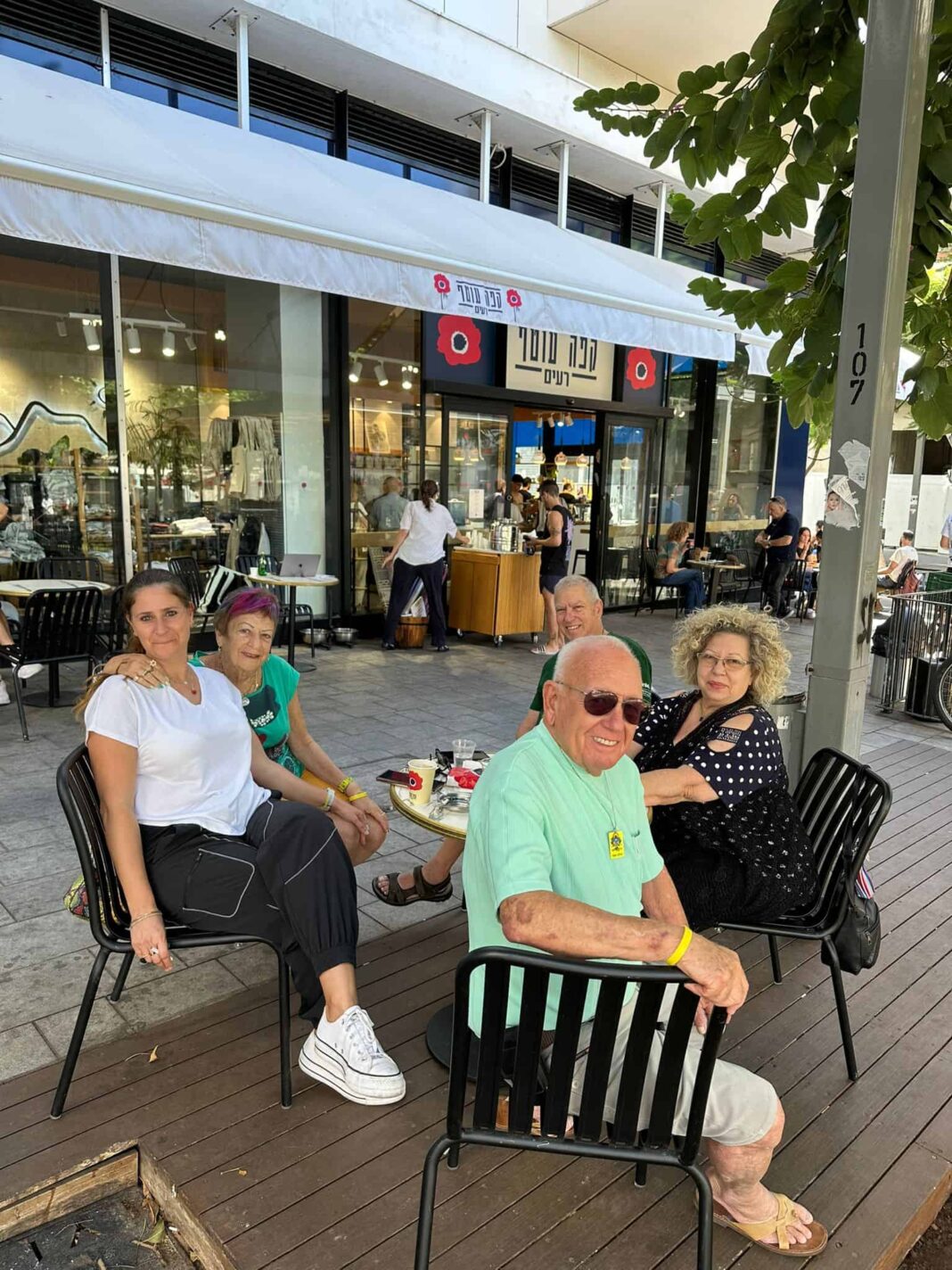|
Getting your Trinity Audio player ready...
|
TEL AVIV, Israel—The muffins, croissants, sandwiches and coffee served at the busy, bright Tel Aviv cafe lined with patrons sipping drinks while working on their laptops gives the feeling of any other trendy city eatery.
Still, Café Otef is anything but.
Named for the region next to the border with the Gaza Strip and run by residents of Re’im—one of the hard-hit Israeli communities during the Hamas terrorist attacks on Oct. 7, 2023—the shop on Wolfsin Street is an homage to a kibbutz resident and chocolatier murdered that day, as well as a place of memory and refuge in the heart of Tel Aviv.
Looking for hope …
“We need to live,” Reut Karp, 43, the cafe owner and ex-wife of chocolatier Dvir Karp, told JNS on Wednesday at the bustling coffee shop, as the war against Hamas in Gaza continued for a second year. (The year before the war, the couple separated, and she returned to the Tel Aviv area.)
“I felt I had to do something to have hope,” she said.
The mother of three young children who survived the attack now lives near the coffee shop in the city’s gentrified Florentin neighborhood, along with other kibbutz members who have not returned home since the massacre.

Two of her kids, ages 8 and 10, witnessed their father and his girlfriend massacred by terrorists in front of their eyes; covering themselves with blankets in the home’s sealed room, they were miraculously spared. Up until today, all three are afraid to go outside, even in Tel Aviv, she said. So Karp picks them up right after school.
‘Nothing happens by chance’
During the COVID pandemic, when life was slow and lockdowns long, Karp convinced her former husband to write down his chocolate recipes, which he had honed after studying in Belgium more than a quarter century ago. He later operated a chocolate store in Tel Aviv and a coffee shop in southern Israel, when they eventually chose to raise their children on the communal farm where his wife is from.
“Nothing happens by chance,” she said in the interview. “I am a big believer” in that.
Reunited with her kids the day after the terrorist attack and then relocated to the southern Red Sea resort town of Eilat for the next two months, Karp mulled over the idea of how to relive her ex-husband’s specialties. A Tel Aviv resident connected with her, suggesting a place where displaced residents of the south could have their own business in a temporary location.

The idea took hold, and the coffee shop opened its doors in June. (An earlier store in the city’s trendy Sarona Market area that operated for half a year from a different southern Israeli community closed down as residents returned home, with an additional branch now planned for the central Israeli city of Rehovot.)
A taste of the south in Israel’s commercial hub
In addition to the lush selections of chocolates, multiple products from southern Israel line the shelves of this anything-but-ordinary cafe, including cheeses from Kibbutz Be’eri, beers from Moshav Dekel and dips from Ein Basor. Add to that a selection of confectionery, honey, books, T-shirts and totes reading, “We shall thrive again.” A portrait of Dvir Karp in his apron hangs over the chocolate section, while a red flower—an anemone, or in Hebrew, calanit—symbolizing southern Israel is an omnipresent logo for the shop, including near the signature sign at the entryway.

Tourists from around the world, along with survivors of Oct. 7, Israeli soldiers who fought in Gaza and Lebanon, as well as Holocaust survivors and locals alike, have frequented the eatery since it opened its doors four months ago, reported Karp. She intends for it to become a permanent fixture in the neighborhood. (There is no phone at the cafe right now due to the abundance of calls when it first opened, she said.)
“I feel like it’s a mission” to retell what happened at the kibbutz to Tel Aviv, said Ziv Hai, 23, originally of Kibbutz Sufa in southern Israel who works at the cashier. “It raises awareness by telling our story, and it shows that it is possible to rise from the graves.”
“I found it by accident,” said Atlanta-born Emily Lykins, 30, of Tel Aviv, who had heard of the original branch and—as a self-declared coffee addict who lives 20 seconds away—has become a daily customer. “I love the community and the feel, and am happy to help out.”
“It’s both convenient and symbolic to bring their reality in front of you in Tel Aviv,” concurred Tomer Gat, 26, a fellow patron, as he worked over an espresso.
As for Karp, she wonders what her ex-husband, a Tel Aviv native who had relocated to the kibbutz would make of the new place. “I’m always thinking if he would be happy with this.”





